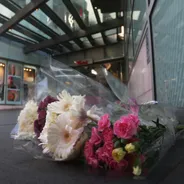Kashgar, in China, is closer to Baghdad than Beijing. It is located in Xinjiang - an autonomous region of the country where almost half of the inhabitants are Uighurs. Muslims who speak a Turkic language, Uighurs have recently been subjugated by an oppressive government and incoming migrants from eastern China.
In fact, as many as one million Muslims have been detained in forced labour camps, according to the estimates of German-based academic, Adrian Zenz. The UN’s estimates puts the overall number of detainees in these camps at one million. One of these people is Abdurehim Heyit, a Uighur musician previously thought to have died while detained.
Due to Uighurs’ close cultural links to Turkey, the country was expected to speak out far sooner than it did. However, fearing sanctions and political tension, Turkey stayed remarkably quiet about the situation until the rumours appeared about Heyit’s death.

Speaking directly about the rumours, foreign ministry spokesperson Hami Aksoy stated that they "further strengthened the Turkish public's reaction to the serious human rights violations in Xinjiang". He added: "The reintroduction of concentration camps in the 21st Century and the systematic assimilation policy of Chinese authorities against the Uighur Turks is a great embarrassment for humanity."
However, a video dated 10 February and released via Chinese state media appears to refute any claims of Heyit’s death. In the eerie video, Heyit explains that he is in good health but is being investigated by the Chinese government. Providing few further details, China then demanded that Turkey retract its accusatory statement.
The singer’s initial disappearance was big news in China. He was a popular musician and master of the Dutar, a two-stringed instrument which is incredibly hard to play. Having studied in Beijing, he performed with national arts troupes.
It’s suspected that Heyit’s act of defiance took the form of a lyric in his song Fathers. At one point, he uses the phrase "martyrs of war". This may have been enough for the Chinese government to suspect him of extremism.

This, the government claims, is the purpose of the scheme. China says that the vast complexes which house thousands of people and are surrounded by walls, fences and watchtowers are actually “re-education” camps tackling extremism.
"We hope the relevant Turkish persons can distinguish between right and wrong and correct their mistakes," foreign ministry spokesperson Hua Chunying told reporters. China referred to the Turkish statement’s assertions as "false accusations" calling them “completely unacceptable”.
![Hua Chunying]](https://img.vt.co/2019/02/765e82ff-gettyimages-936796638-min.jpg)
However, the clip appears to follow the style of a forced confession video - which are far from uncommon in China. Yet not everyone believes the video is even real. Nury Turkel, chairman of the US-based Uyghur Human Rights Project, told the BBC that he believes some aspects of the video are “suspicious”, adding that the Chinese government could manipulate the video due to the "technological advantages it has".
"The Chinese government responds to Turkey because of the influence it has in the Muslim world," Turkel added. “The ball is in the Chinese government's court. They detained Heyit. They detained 10% of the Uighur population. They are trying to tell the world there is no abuse and these are just so-called vocational training centres. It's their responsibility to prove the video is authentic." Like many people, he too believes that Turkey was late to respond to the incident.
“There was a special room to punish those who didn't run fast enough,” former internment camp inmate Ablet Tursun Tohti told the BBC for a report published last year. “There were two men there, one to beat with a belt, the other just to kick.”
The report found that there were many rumours about the new structures popping up over the region. “There are tens of thousands of people ... They have some problems with their thoughts,” a Xinjiang resident explained over the phone.
“We sang the song called ‘Without the Communist Party There Can Be No New China’,” Tohti explains. Most reports from ex-prisoners talk of nationalistic songs, language lessons and physical abuse. Inmates are required to "sing hymns praising the Chinese Communist Party and write 'self-criticism' essays" according to a New York Times report. “And they taught us laws,” Tohti adds. “If you couldn't recite them in the correct way, you'd be beaten.”
The news that China may be housing up to one million Muslims in internment camps surfaced in the mainstream media in October of 2018. Meanwhile, tens of millions of Chinese people are thought to be living in laogai (forced labour camps) which often produce products for foreign export.

This is why Oregon mother Julie Keith found an SOS message in a Kmart Halloween decoration. "Sir," the note starts, before continuing in broken English. "If you occassionally buy this product, please kindly send this letter to the World Human Right Organization. Thousands people here who are under the persicution of the Chinese Communist Party Government will thank and remember you forever."
Having heard the details of the abuse and torture in Shenyang’s Masanjia labour camp, Keith invested time in publicising the story until it was eventually picked up by the media. However, it was only when the letter’s author Sun Yi was released that she received thanks from the man himself.
Their meeting in Jakarta made for a tearful international news story in itself. Entirely unaware of the concept of Halloween, Sun Yi told of how he had once glimpsed someone carrying pretend bones at the labour camp and thought them to be the remains of his missing peers. Soon after meeting Julie Keith, Sun Yi died of kidney failure, having potentially been visited by a Chinese agent.

Perhaps what makes the story of Sun Yi all the sadder is that his crime was being a follower of Falun Gong - a peaceful, yoga-like activity with an associated lifestyle and belief system. The Chinese government, however, saw Falun Gong as a threat. They outlawed the movement and now detain anyone found to be contravening the ban.
Those in Xinjiang’s internment camps are there under similarly strange pretences. “I have deeply understood my own mistakes,” a man tells the camera in the official state-sponsored video about the scheme. China may well be advanced economically and technologically, but sadly it is lagging far, far behind when it comes to human rights.












